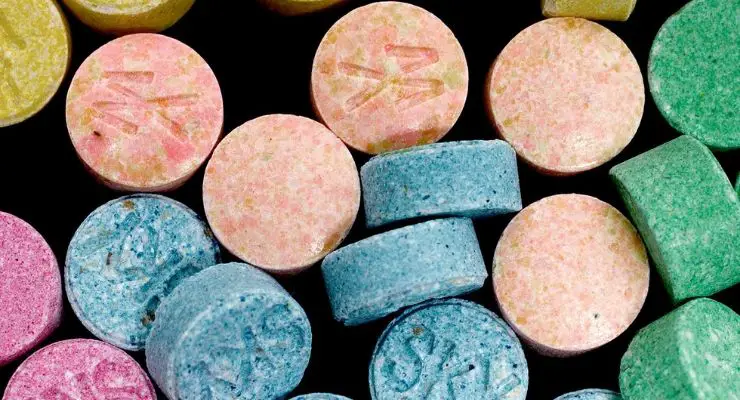Health
War on Drugs Has Done Far More Harm Than Illegal Drugs, Major Report Finds
Many illegal drugs are less harmful than tobacco or alcohol yet seen as more dangerous due to biases.

(TMU) — Illegal drugs including cocaine, ecstasy and opiates can potentially be less harmful than tobacco or alcohol yet are seen as dangerous narcotics due to cultural biases and politics rather than actual science, according to a report by the Global Commission on Drug Policy.
Calling for a comprehensive review of the international system that classifies drugs, the commission—comprised of 14 former heads of states from countries including Mexico, Colombia, Portugal and New Zealand—blasted the “incoherence and inconsistencies” of laws that cherry-pick the harmful effects of certain substances using “unreliable and scientifically dubious” methods.
The group also described how the scheduling system has propped up a global drug control regime that imposes major costs on society in the form of “collateral damage,” with some substances facing strict controls and others allowed for medical purposes. This has entailed patients in low-to-middle income countries facing surgery without anesthetics, a lack of crucial medicines, and excruciating and painful deaths that were wholly unnecessary and a result of a ban on opioid pain treatment.
In 2011, the World Health Organization (WHO) estimated that 83 percent of the global population resides in countries where access to opioid pain relief is either inadequate or nonexistent.
Michel Kazatchkine, a French physician and former head of the Global Fund to Fight Aids, Tuberculosis and Malaria, said that 75 to 80 percent of the global population lacks access to medicines and “all of the reasons are linked to repression and prohibition-based control systems,” according to the Guardian.
Other consequences include the spread of infectious diseases, higher mortality rates and prisons around the globe that are filled to the brim with drug users.
The group wrote:
“Such drug control policies have resulted in social and economic problems not only for people who use drugs but also for the general population, including health epidemics, prison overcrowding and arbitrary enforcement of drug laws.”
Continuing to criticize the arbitrary and biased application of drug laws, the group wrote:
“This de facto prohibition is arbitrary. the current distinction between legal and illegal substances is not unequivocally based on pharmacological research but in large part on historical and cultural precedents.
It is also distorted by and feeds into morally charged perceptions about a presumed ‘good and evil’ distinction between legal and illegal drugs.”
Ruth Dreifuss, former president of Switzerland and commission chair, blasted the classification while calling for a “critical review” that centers the WHO, modern scientific research and a criteria that sufficiently takes into account the harm and benefit of substances. Dreifuss said:
“The international system to classify drugs is at the core of the drug control regime – and unfortunately the core is rotten.”
Dreifuss also noted how some illegal drugs such as cocaine, heroin, cannabis and hashish haven’t been seriously evaluated in 30 years or weren’t evaluated at all, seriously undercutting the legitimacy of prohibitionist approaches.
Former president of Colombia Juan Manuel Santos similarly affirmed that drugs should be reclassified. Speaking to journalists in an online briefing on the report, Santos noted that “the scientific basis [of classification] is non-existent.”
Continuing, the former president explained:
“It was a political decision. According to the studies we’ve seen over past years, substances like cannabis are less harmful than alcohol … I come from Colombia, probably the country that has paid the highest price for the war on drugs.”
Instead, the country has been saddled for over 50 years with an unwinnable drug war that causes “more damage, more harm” to the world than practical approaches to regulating the sale and consumption of drugs in a “good way,” he added.
The Global Commission added the “only responsible answer to this complex topic is to regulate the market of illegal drugs, starting by establishing regulations and a new scheduling system adapted to the dangerousness of each drug and based on solid scientific assessments,” in line with the same criteria used for food, medications, and other products that could potentially pose risks to consumer health.
The group added:
“While the international community continues to struggle to find a new consensus, countries should move forward with designing and implementing a more rational policy of scheduling, controlling and regulating psychoactive drugs.”
The group also recommended that milder and less harmful drugs should have restrictions loosened, especially to include “other legitimate uses” such as traditional, religious or social use.
Anand Grover, the former special U.N. rapporteur for health, India, said:
“We need to think of these things with a fresh outlook. We can’t go with the cultural biases of the west.”
By Elias Marat | Creative Commons | TheMindUnleashed.com
Typos, corrections and/or news tips? Email us at Contact@TheMindUnleashed.com
